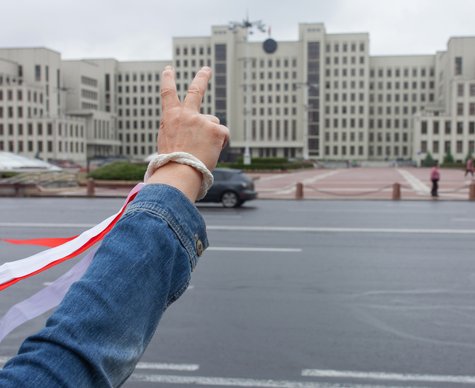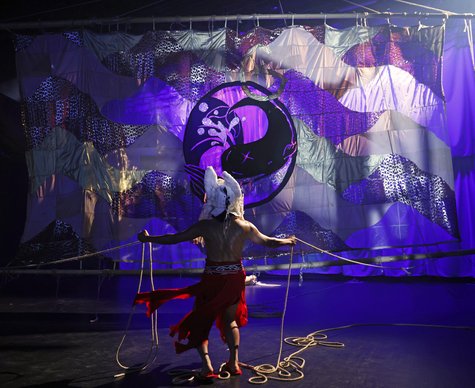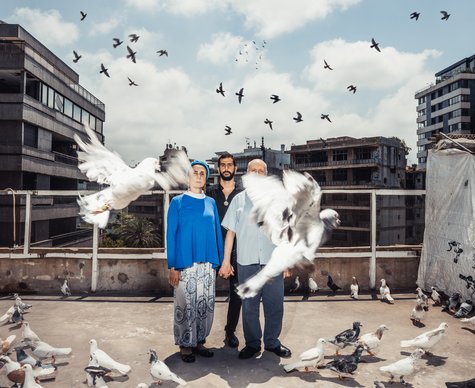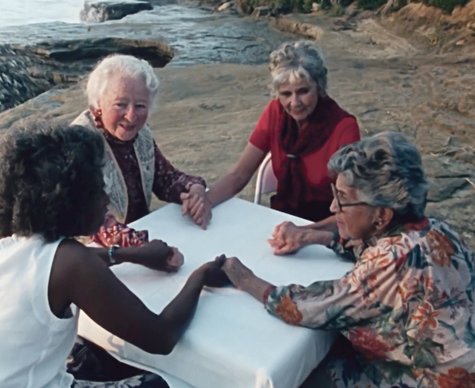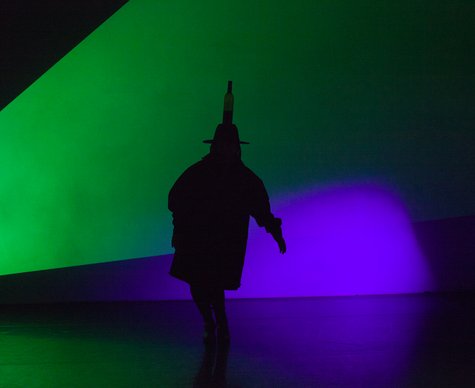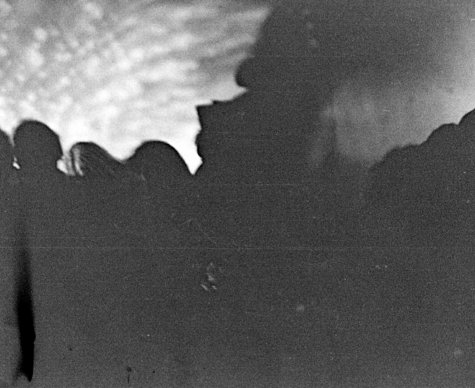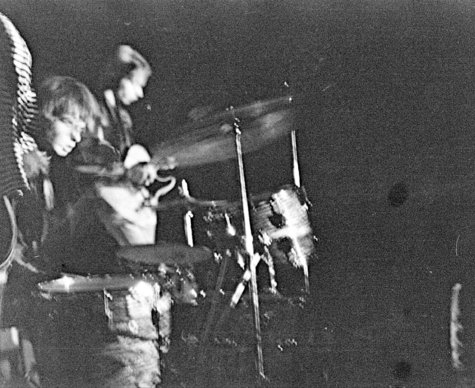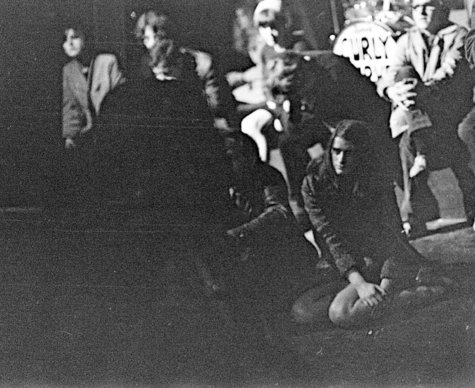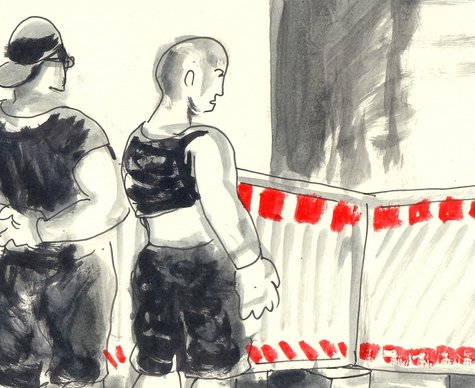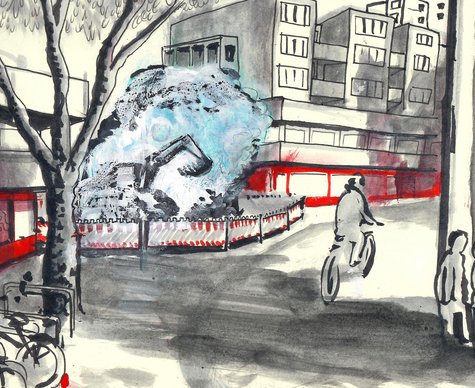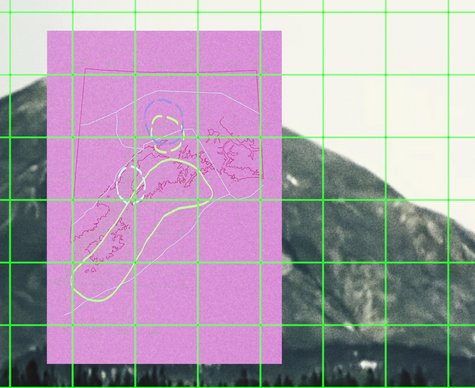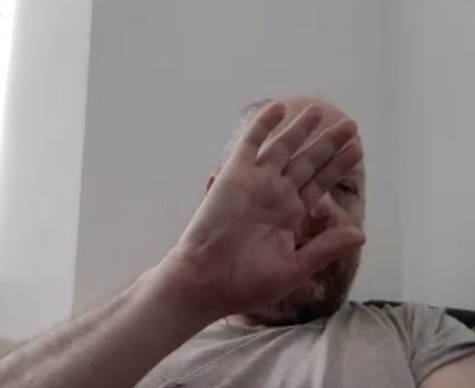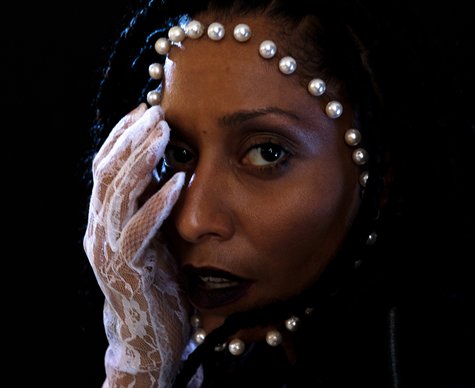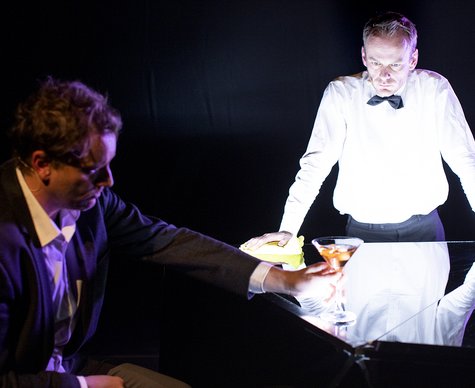Concept, text, direction: Helgard Haug / Composition: Barbara Morgenstern / Orchestra: Zafraan Ensemble / Stage: Evi Bauer / Video/Light Design: Marc Jungreithmeier / Sound Design: Peter Breitenbach / Conducting: Premil Petrović / Arrangement: Davor Branimir Vincze / Technical management: Andreas Mihan / Dramaturgy: Juliane Männel / Outside Eye: Aljoscha Begrich / Research / Assistant director: Lisa Homburger / Assistant stage design and costume: Christine Ruynat / Assistant sound design: Rozenn Lièvre / Hands: Johannes Benecke, Mia Rainprechter / Speakers: Emma Becker, Evi Filippou, Margot Gödrös, Ruth Reinecke, Mia Rainprechter, Louise Stölting, u.a. / Production management: Louise Stölting / Zafraan Ensemble musicians stage: Matthias Badczong (clarinet), Daniel Eichholz (drums), Josa Gerhard (violin),Martin Posegga (saxophon), Beltane Ruiz (contrabass) / Zafraan Ensemble musicians recording: Josa Gerhard (violin), Noa Niv (trombone), Matthias Badczong (clarinet), Liam Mallet (flute), Martin Posegga (saxophone), Damir Bacikin (trumpet), Anna Viechtl (harp), Adam Weisman (drums), Yumi Onda (violin), Benedikt Bindewald (viola recording), Maria Reich (viola), Alice Dixon (cello), Natalie Plöger (contrabass), Florian Juncker (trombone) / Performing rights: schaefersphilippen Theater and Medien GbR / Music rights: Barbara Morgenstern © Maobeat Musikverlag/Budde Music Publishing GmbH / Thanks to: Figurentheater Grashüpfer
Rimini Protokoll (Helgard Haug)
All right. Good night.
A play about disappearance and loss
With music by Barbara Morgenstern in collaboration with the Zafraan Ensemble
- Theatre
The theatre is the place of realisation, presence and liveness. Every happening on the stage is permeated with vitality. The audience can assure itself second after second: These bodies on stage are there for me, this voice is speaking to me – now, in this moment. But what happens to theatre when human presence is no longer a given and disappears for a performance? What remains then? The Malaysia Airlines international passenger plane MH370 suddenly disappeared from radar on March 8 2014 with 227 passengers and 12 crew members. Its disappearance has been called one of the greatest aviation mysteries of all time – because it seems unbelievable that something so big could be lost in a world where presumably everything and everyone is under surveillance. Shortly after the plane disappeared, the father of the author and director writes four birthday letters to his grandson. The contents are almost identical; each envelope bearing a special issue stamp. A year later, no card arrives at all, the birthday was probably forgotten, and at some point, this forgetfulness gets a name and becomes a disease: dementia. In “All right. Good night.”, Helgard Haug charts the disappearance, the search and the struggle with uncertainty – using the example of the missing plane and the manifestation of dementia in her own father. It is the protocol of an irreversible process.
As an artistic medium, music has a grand tradition of making tangible what has disappeared. Be it through a requiem in memory of the deceased or through a choir, which back in ancient theatre testified as a chronicler, reporting on barely conceivable battles and divine providence. For “All right. Good night.”, the electro-pop musician Barbara Morgenstern has composed for the first time for a classical orchestra in collaboration with arranger Davor Vincze.
What remains? Only thoughts and memories? The naked theatre apparatus? The music?
“All right. Good night.” was invited to the 2022 Theatertreffen and voted “Inszenierung des Jahres” by Theater Heute.
Barbara Morgenstern is an electronic musician, composer, producer and choir director. In 1998, she began a serious of releases on Berlin label Monika Enterprise, and her most recent album came out in 2018 via Staatsakt. Since 2007, she has been directing the Chor der Kulturen der Welt at Berlin’s HKW (House of World Cultures), for which she also composes, arranges and selects the programme. She has been working with Rimini Protokoll consistently since 2012.
Zafraan Ensemble represent music that reflects today’s life, today’s society, today's reality in all possible facets. Through interaction with other art forms, Zafraan observe, explore and process all that surrounds us: people, events, nature and technology, with all the accompanying normalities and absurdities. Formed in Berlin in 2009 and consisting of ten permanent members from Spain, France, New Zealand, Australia and Germany, the group performs a mostly contemporary repertoire with violin, viola, cello, bass, flute, clarinet, saxophone, harp, piano and percussion.
Cast
Dates
Credits
Production: Rimini Apparat. Co-production: HAU Hebbel am Ufer, Volkstheater Wien, The Factory Manchester, Künstlerhaus Mousonturm, PACT Zollverein. Funded by: Capital Cultural Fund, Berlin Senate Department for Culture and Social Cohesion. The re-run is funded by the Berlin Senate Department for Culture and Social Cohesion.


Location
HAU1
Stresemannstr. 29, 10963 BerlinThere are two marked parking spots in front of the building. Access to the Parkett by means of a separate entrance with lift when necessary. Barrier-free restroom facilities are available. Tickets for wheelchair users and accompanying persons can be booked via the ticketing system. If you need any help, please contact our Ticketing & Service team at +49 (0)30 259004-27 or send us an email at
tickets@hebbel-am-ufer.de.






















